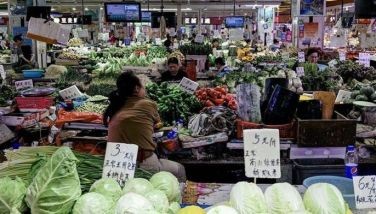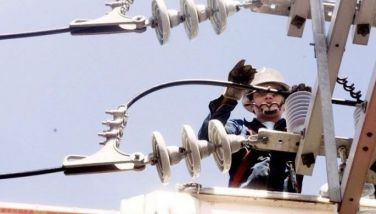The Omicron variant – new twist to the economic recovery

The appearance of the Omicron variant of the COVID virus has alarmed the international community.
Little is yet known about this variant from the standpoint of transmissibility and virulence.
Clues to economic costs. The Omicron variant adds some uncertainty to the fight against the pandemic. For most of the year, the Delta variant has been the main challenge.
There are factors that favor some degree of optimism. Two years of fighting the pandemic has enabled those at the frontline – national and local administrators, scientists, vaccine inventors and manufacturers – to gain some degree of experience, learning, and control. One major strong conclusion from this experience is that the vaccines have been working well.
Yet, there is a sense that the fight against the COVID pandemic is not yet settled. In a number of countries, in Europe, a resurgence of new cases is happening in the third winter of the pandemic, even before the emergence and complication of the new variant. With Omicron, such a development carries greater risks of the unknown.
The main question before the world is whether the current vaccines that are the main weapons will measure up against this new variant. Will there be a need for better vaccines to be produced or is it the case that the vaccines can work against the new variant?
The uncertainty has sent further tremors to the economic and financial markets.
The global front. At the global level, the potential for immediate spread and transmission has been held back by an almost coordinated restriction in border crossings in many countries.
Such measures created immediate defense against the new strain from taking a strong foothold within their borders. Even then, isolated cases of infections have already been reported.
At the world stage, however, if vaccines are proven effective, the distribution of vaccines across countries is still very unequal. Country development levels is an explanation. The vaccines are produced in a few countries where the first vaccines were first invented.
The priority of who got the supplies of vaccines first has led to the phenomenon of vaccine nationalism, so-called because the supply of vaccines was kept first and used in those countries that produced the vaccines or could afford to pay for them.
A highly tilted distribution of vaccines favored the well-developed world, which experienced earlier relative success in combatting the pandemic sooner.
Today, vaccines are beginning to be more widely available to more countries. The vaccination of the richer world has increased quickly as vaccine production ramped up. Moreover, vaccine resistance among residents in countries with strong programs of inoculation has also led to an oversupply of vaccines planned for use.
This has helped to increase the supply made available to poorer countries through development aid under the Covax facility.
As regards the new variant, the WHO reports that it is coordinating with a large number of researchers around the world to understand the Omicron variant – its transmissibility, the severity of infections, and the performance of vaccines and diagnostic tests, and the effectiveness of treatments.
American vaccine makers claim that, given more data on the new variant, they are capable of adapting their vaccines within a period of six weeks and that such adjustments will enable them to ship the first batches within 100 days.
There is reason to believe that vaccine makers in other countries are as busy to modify their vaccines or to find superior solutions in fighting the Omicron variant.
For now, the Omicron variant presents a new obstacle in the complicated pathway toward the conquest of the pandemic.
The national front. The country’s battle against the pandemic – after a series of mistakes at the beginning – has found some stabilizing comfort in the decline of the number of new cases, including the fall in the number of deaths from COVID. This trend is not a guarantee that a reversal will not happen.
The Omicron variant (or any significant new variant for that matter) has the potential to upset the trend. Even opening the economy more does not mean that infection trends from existing threats to transmission will not reverse.
Three points need to be highlighted.
First, the economic cost of the pandemic has been a big burden. Budget realignments, which were directed to the public health budget and toward subsidies of households and firms, both at the public and private sectors, have led to disruptions of many planned activities under normal circumstances.
Second, after almost two years of fighting it, the government and many of its local government units have learned how to deal with many aspects of the challenges of the pandemic. Vaccine supply is now more plentiful and more people are getting vaccinated. The rate of vaccination of the population needs to improve further, but the country is much better covered by vaccinated residents than just a few months back. Such developments are helping the reduction of the number of total cases and of deaths from the pandemic. This is certainly a great improvement.
Finally, perhaps the worst impact of the pandemic might have taken already a heavy cost to the economy. Such costs can be tracked by noting the decline in the GDP, the extent of unemployment, and the growth in the size of the fiscal deficit.
All these can be observed by the presence of widening poverty in our midst. The improvement of the overall picture in the struggle against the pandemic cannot hide the enormous challenge to efforts to get the economic recovery to move forward.
Therefore, despite the threat of the Omicron variant and other challenges, the focus on the future certainly calls for pushing the possibilities of economic recovery.
For archives of previous Crossroads essays, go to: https://www.philstar.com/authors/1336383/gerardo-p-sicat. Visit this site for more information, feedback and commentary: http://econ.upd.edu.ph/gpsicat/
- Latest
- Trending































